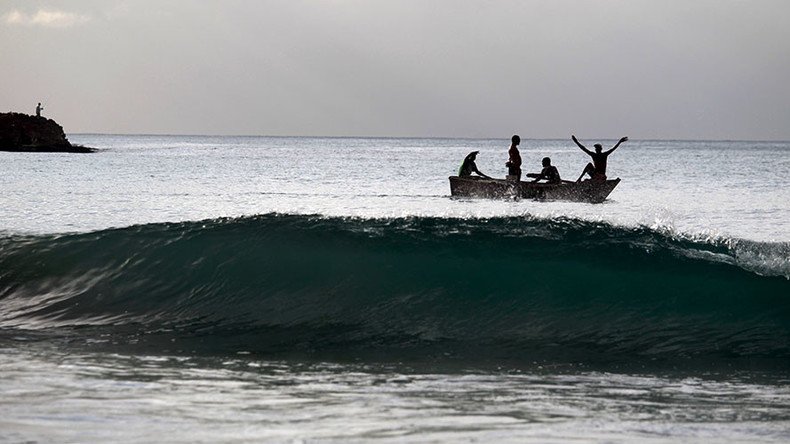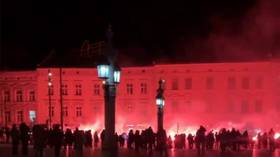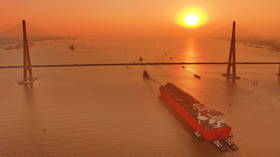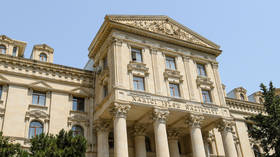Caribbean Sea emits mysterious noise which can be ‘heard’ from space

There’s a whole other world under the sea and it appears now it’s making a mysterious whistling noise which humans can’t hear, though it can be detected in space, according to new research.
Scientists at the University of London have found that due to the size of the sea, it’s producing a sound from its seafloor which plays a note of A-flat, although many octaves lower than a piano and not audible to the human ear.
Southeast of the Gulf of Mexico, the Caribbean Sea covers over 1 million square miles and is bounded by South America, Central America and the Caribbean islands.
Initially looking at ocean pressure in the area, Chris Hughes and his team discovered “inexplicable pressure oscillations” across the sea’s basin and decided to look closer at what was going on.
The Big One: 'Large scale motion' detected along San Andreas fault https://t.co/ATEE9gu8i8pic.twitter.com/W9P9DqOoLf
— RT America (@RT_America) June 21, 2016
To do this, sea levels and pressure readings spanning almost 60 years were analyzed by the team of researchers using four different models of ocean activity.
They also looked at data from tide gauges and satellite measurements of gravity to see if there was an obvious explanation.
What the researchers found was that the noise was being generated by a Rossby wave and its interaction with the seafloor. A Rossby wave is, in general terms, a wave generated by differences in temperatures of oceanic water levels and by the Earth’s rotation.
The phenomenon of it generating a sound is called a ‘Rossby whistle’.
This whistle noise is emitted when a large wave dies out on the western boundary of the basin before then reappearing on the eastern side, which the researchers described as a ‘Rossby wormhole’.
Elon Musk wants AI to perform basic housework https://t.co/tdUNsWSFLdpic.twitter.com/d7pQCsbqfa
— RT (@RT_com) June 22, 2016
Only waves of a certain length survive the wormhole, however, and it is these which create the mysterious noise by producing an oscillation over a 120-day period.
“We can compare the ocean activity in the Caribbean Sea to that of a whistle,” says Hughes. “When you blow into a whistle, the jet of air becomes unstable and excites the resonant sound wave which fits into the whistle cavity. Because the whistle is open, the sound radiates out so you can hear it.”
You might think the #city is a #noisy place, but right now the #Caribbean#sea is making some noise of its own https://t.co/sFrtalanzu
— ASTech Foundation (@ASTechFDN) June 22, 2016
Comparing it to the ocean, Hughes says that as the ocean current in the Caribbean “becomes unstable,” it “excites a resonance of a rather strange kind of ocean wave called a 'Rossby wave'.”
“Because the Caribbean Sea is partly open, this causes an exchange of water with the rest of the ocean which allows us to 'hear' the resonance using gravity measurements,” he added.
As it occurs over such a time frame, it can cause the Earth’s gravity field to fluctuate, which can be measured by satellites in outer space.
With the ‘Rossby wave’ causing sea levels to vary by as much as 10cm along the Colombian and Venezuelan coasts, scientists also hope that it may help predict the likelihood of coastal flooding.












